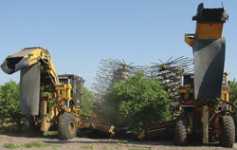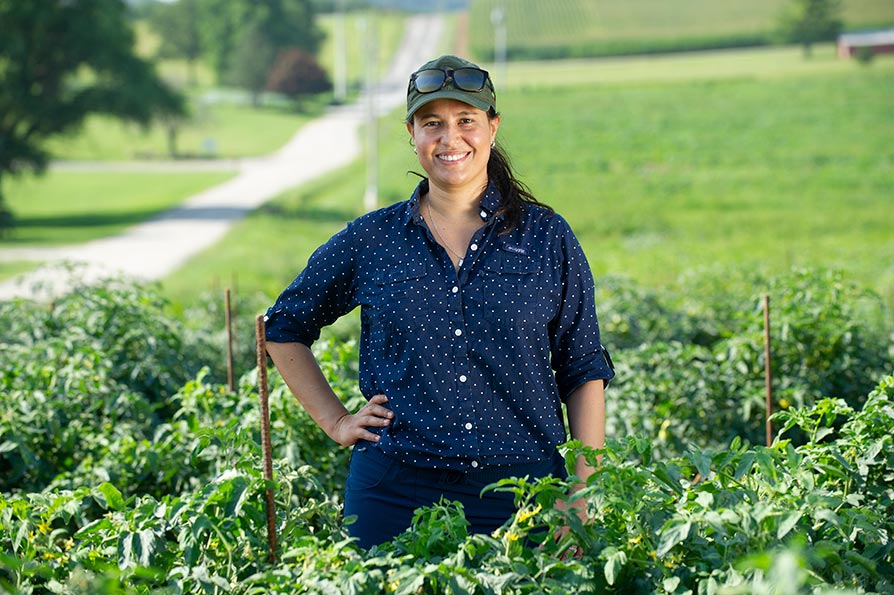Reap Benefits With Citrus Mechanical Harvesting

To be competitive in an increasingly global marketplace, Florida citrus growers must reduce harvesting costs. Furthermore, immigration issues may force a substantial decrease in the available numbers of workers to harvest citrus. These concerns pushed the Florida Department of Citrus (FDOC) to re-examine the feasibility of mechanical harvesting for citrus. For the last few years, the FDOC and the University of Florida/Institute of Food and Agricultural Sciences (UF/IFAS) have been supporting harvesting research and evaluating several mechanical harvesting machines and abscission chemicals to increase the efficiency of mechanical harvesting.
Research Disproves Reservations
Despite the substantial cost savings of mechanical harvesting relative to conventional hand harvesting, the adoption of mechanical harvesting has been slower than expected. Many factors contribute to the slow acceptance of mechanical harvesting. One factor is the visible damage to the trees that can include breaking of branches, sloughing of trunk bark, exposing root systems, and noticeable leaf, flower, and young fruit drop. Growers worry that these visible signs of physical damage will have negative effects on tree health and future yields. When healthy, well-managed trees are mechanically harvested, there is no scientific evidence that these injuries negatively reduce tree yields or longevity.
For the last five years, several studies have focused on the physiological effects of mechanical harvesting. Short- and long-term physiological measurements revealed that the water use, growth, and yield of healthy, well-managed and well-prepared citrus trees was not negatively affected by mechanical harvesting — even when mechanically harvested annually for several consecutive years. The removal of healthy leaves by mechanical harvesting has no long-term effect on trees, and in some cases, can even be beneficial to light penetration, growth, and yield. Any visible root damage after shaking does not measurably affect water and nutrient uptake by the root system. In addition, root growth and recovery, return bloom, and water status were similar to that of hand-harvested trees.
Mechanical harvesting during peak bloom in Valencia removes some flowers, but does not diminish fruit set. These trees did not develop any physiological stress as measured by stem water potential or leaf photosynthesis. So long as the diameter of the young green Valencia fruit is less than about 1 inch, mechanical harvesting of Valencias does not reduce yields the following year. Once the young fruitlets exceed this size, however, aggressive trunk or canopy shaking will likely depress the following year’s yield by at least 25%.
The Bottom Line
Except for late-season Valencia with large young fruit, all research studies where citrus trees have been harvested mechanically for many years have shown no reductions in yield or tree health. Currently, work is underway to develop an abscission chemical which could solve the late-season Valencia problem.









